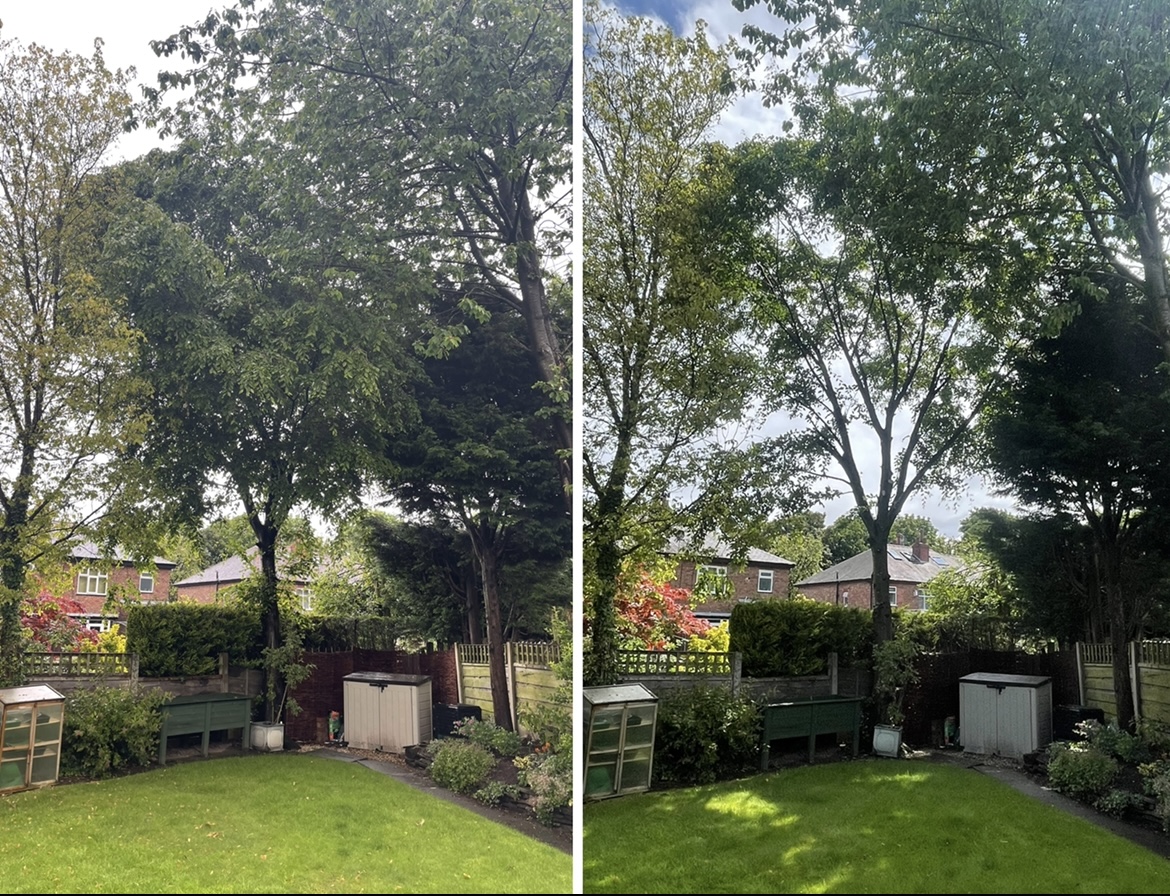- 3 min Read
- Adam Ashley
Today we take a look at the legality of whether you can cut tree’s down on your OWN property.
Trees can be a valuable asset to your property, but they can also cause problems such as blocking views, dropping leaves and branches, or interfering with power lines. As a property owner, you may be wondering if you have the legal right to cut down a tree on your property, or if you can cut down your neighbor’s tree if it is causing problems. In this blog post, we will discuss the laws regarding tree removal in Manchester.
Can You Legally Cut Down a Tree on Your Property in Manchester?
In general, property owners have the right to cut down trees on their own property. However, there are some exceptions to this rule. For example, if the tree is protected by a Tree Preservation Order (TPO), you may need to obtain permission from the local council before you can remove it. Similarly, if the tree is located in a conservation area, you may need permission to carry out any work on it, including removal.
It is also important to consider the impact that tree removal may have on the environment, especially if the tree is part of a larger ecosystem. Removing a tree can have significant ecological impacts, such as disrupting animal habitats, altering water cycles, and contributing to soil erosion. In some cases, it may be necessary to obtain expert advice and consult with environmental authorities before removing a tree.
Can You Legally Cut Down Your Neighbor’s Tree in Manchester?
In most cases, you do not have the legal right to cut down your neighbor’s tree, even if it is causing problems on your property. Trees are considered the property of the person who owns the land on which they grow, and it is illegal to damage or destroy someone else’s property without their permission. If you cut down your neighbor’s tree without their consent, you may be held liable for damages and may face legal consequences.
However, there are some situations where you may be able to take action to address problems caused by your neighbor’s tree. For example, if the tree is causing damage to your property, you may be able to seek legal remedies such as a court order for the tree to be removed or trimmed. It is important to consult with a legal professional and understand your options before taking any action against your neighbor’s tree.
In conclusion, the laws regarding tree removal in Manchester can be complex and vary depending on the circumstances. As a property owner, you may have the right to remove trees on your own property, but it is important to consider the environmental impacts and any legal requirements before doing so. If you are experiencing problems with a neighbor’s tree, it is important to understand your legal options and seek professional advice before taking any action.




